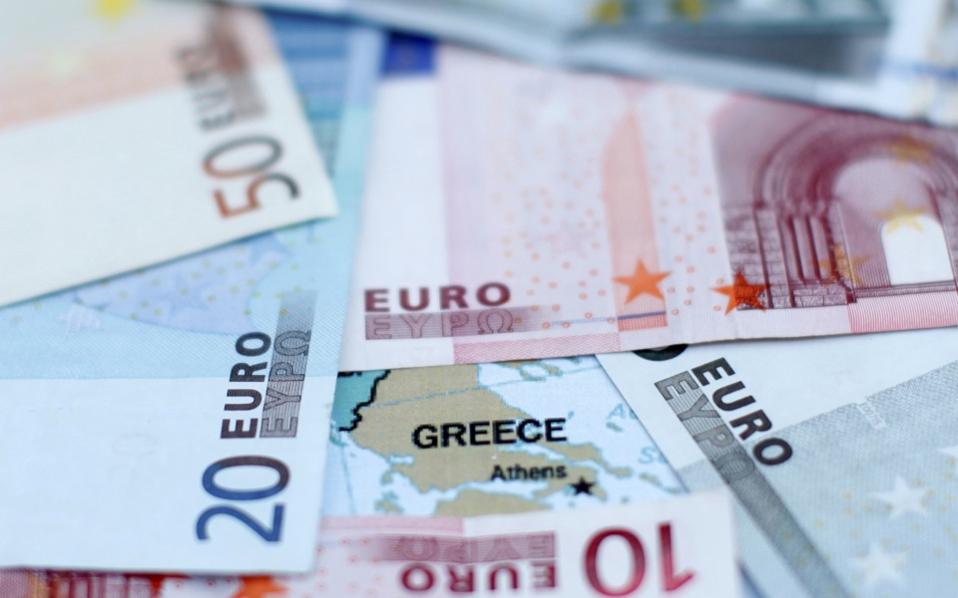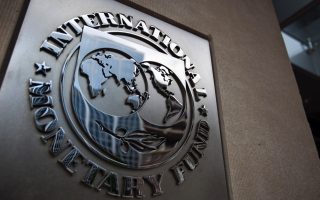Euro’s resilience during Greece debt crisis belies damage done

The euro may have avoided the indignity of losing a member, yet the wrangling over Greece has delivered lasting damage to its image in the eyes of investors.
Millennium Global Investments Ltd. and M&G Investments Inc., which manage a combined $413 billion, say the political brinkmanship leading up to last week’s bailout deal exposed the euro zone’s weakness: the lack of a fiscal union. Commerzbank AG, Germany’s No. 2 lender, warns the ongoing crisis will erode demand for the euro as a reserve currency, which reached a 13- year low in March.
“There are cracks in the edifice of the currency union,” said Richard Benson, a money manager at Millennium Global in London, which oversees $13.4 billion in foreign-exchange assets. With or without Greece leaving the euro, “our longer-term view of the euro is diminished because of the political breakdown.”
Because the euro remained resilient as Greece came close to leaving the currency bloc, the pressures it faces show up best in long-term measures such as reserves data and cross-border flows. Those suggest investors are discriminating more between member states. At stake is nothing less than the 19-nation currency’s status as an irrevocable symbol of European unity.
M&A flows
The biggest risk for investors, and euro-zone policy makers, is contagion from Greece to other countries in the region’s periphery. Spain and Portugal are often named as countries that may follow if Greece was forced out of the currency bloc.
Flows into Spanish and Portuguese companies from mergers and acquisitions total $16.9 billion this year, down 46 percent from the same period in 2014, data compiled by Bloomberg show.
Evidence of lingering stress can also be found in the nations’ bond yields versus those of benchmark German securities. While they’re a fraction of their highs in 2012, when the region’s debt crisis was at its peak, they remain elevated compared with the euro’s early years through 2007. For Spain, the difference in 10-year yields is about 1.24 percentage points, compared with the median of 0.01 percentage point from the start of 2003 to the end of 2006.
The stress is less visible in the single currency’s value, which rose to $1.0979 as of 10:21 a.m. London time Thursday after Greek lawmakers voted through a second package of creditors’ demands. That’s more than 1 percent stronger than three months ago, when concerns over the nation’s future were at their height.
Euro ‘reversible’
Europe’s shared currency accounted for 20.7 percent of global central-bank holdings in the three months ended March 31, the lowest proportion since 2002 and down from 22.1 percent at the end of last year, International Monetary Fund data show.
While the drop partly reflects the euro’s 20 percent slide since mid-2014, it’s no coincidence that it’s fallen steadily from a peak of 28 percent in late 2009, just as the debt crisis started to erupt, said Ulrich Leuchtmann, head of foreign- exchange strategy at Commerzbank.
“The decline in euro holdings suggests the currency may not look attractive to some investors in the longer run,” Leuchtmann said from Frankfurt. “The perception that the euro project is reversible could further undermine the currency. Without fiscal integration, which is a politically sensitive issue, the idea of a common currency isn’t sustainable.”
Political rhetoric
While French President Francois Hollande last week recommended closer fiscal union, there’s little serious appetite for this among many member states.
The extraordinary rhetoric deployed by the continent’s leaders recently — Greek Prime Minister Alexis Tsipras said he agreed to his nation’s bailout with “a knife at my neck” — has also highlighted the divisions that exist across Europe. And the recent talks were different from earlier negotiations in that officials openly floated the possibility of Greece leaving the euro.
“What happened shows that the euro region, unlike the U.S., is not an optimal currency group,” said Jim Leaviss, a money manager at M&G Investments, which oversees $400 billion. “If the group is going to move forward, it needs fiscal transfers. Lack of this policy will undermine the euro’s longer- term outlook.”
[Bloomberg]





